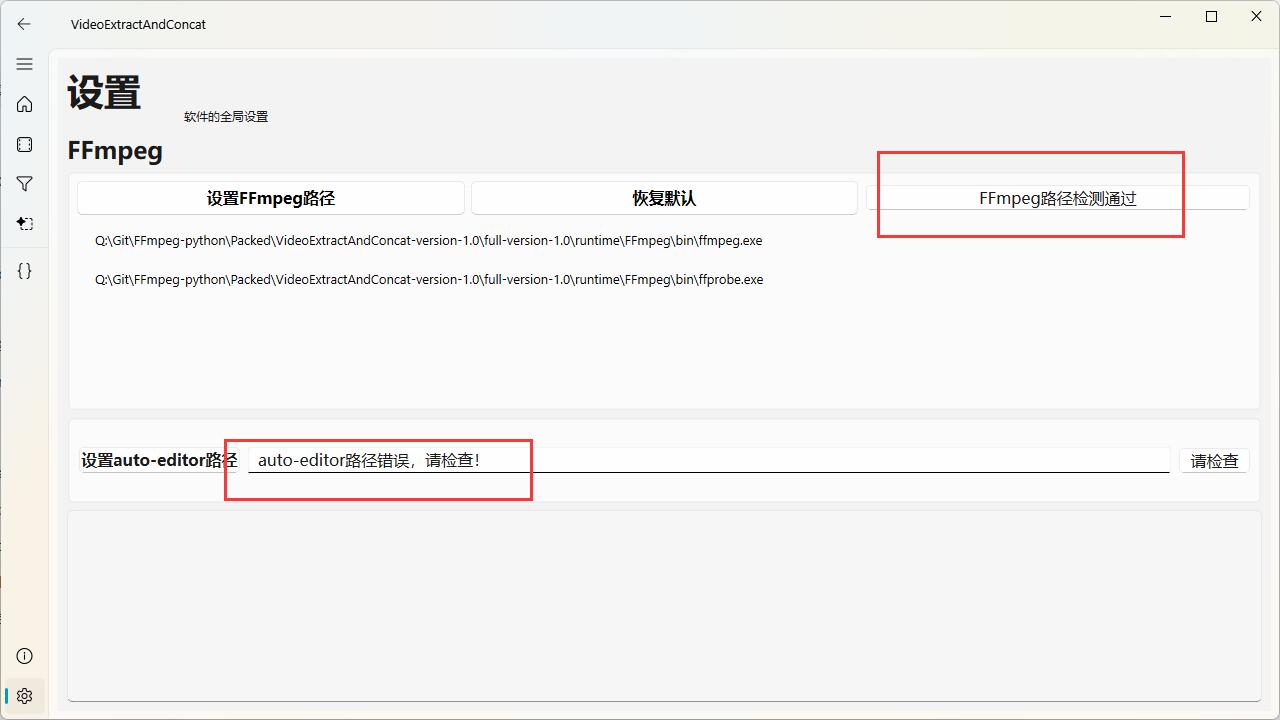System Principal Functions (User Perspective)
1. Video Import and Export
Click the "Add File" button to select video files from the file dialog that need to be imported. Upon choosing the files and clicking "Open," the system will automatically load the videos. Once all parameters are set, click the "Select Output Folder" button to choose a destination folder from the subsequent dialog. Finally, initiate the processing by clicking the "Process Video" button. (Refer to Figure 3)
2. Video Transcoding
After adding files, under the "Encoding Settings," users can modify various video encoder settings. Advanced users familiar with FFmpeg have the option to edit parameters manually in the "Custom Encoding" text box. (Figure 3 illustrates this)
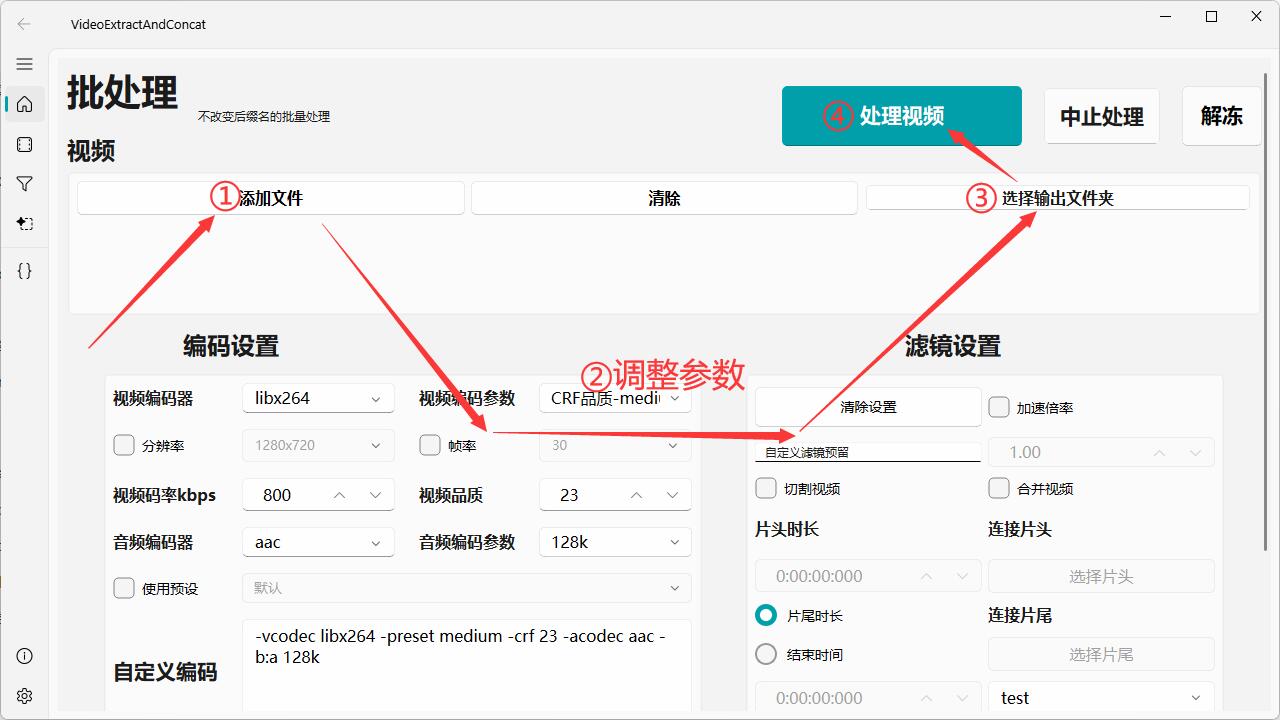
3. Video Filters
The functionality of video filters varies across different panels. In the batch processing panel, features include trimming videos (by removing intro length, outro length, or ending at a specific timestamp), concatenating videos (adding intros or outros), and adjusting playback speed, with each function operating independently and not concurrently applicable. (Refer to Figure 3)
In the transcoding panel, users can add subtitles, incorporate audio tracks, and trim videos, with the latter not being usable simultaneously with the other two functions. (Illustrated in Figure 4)
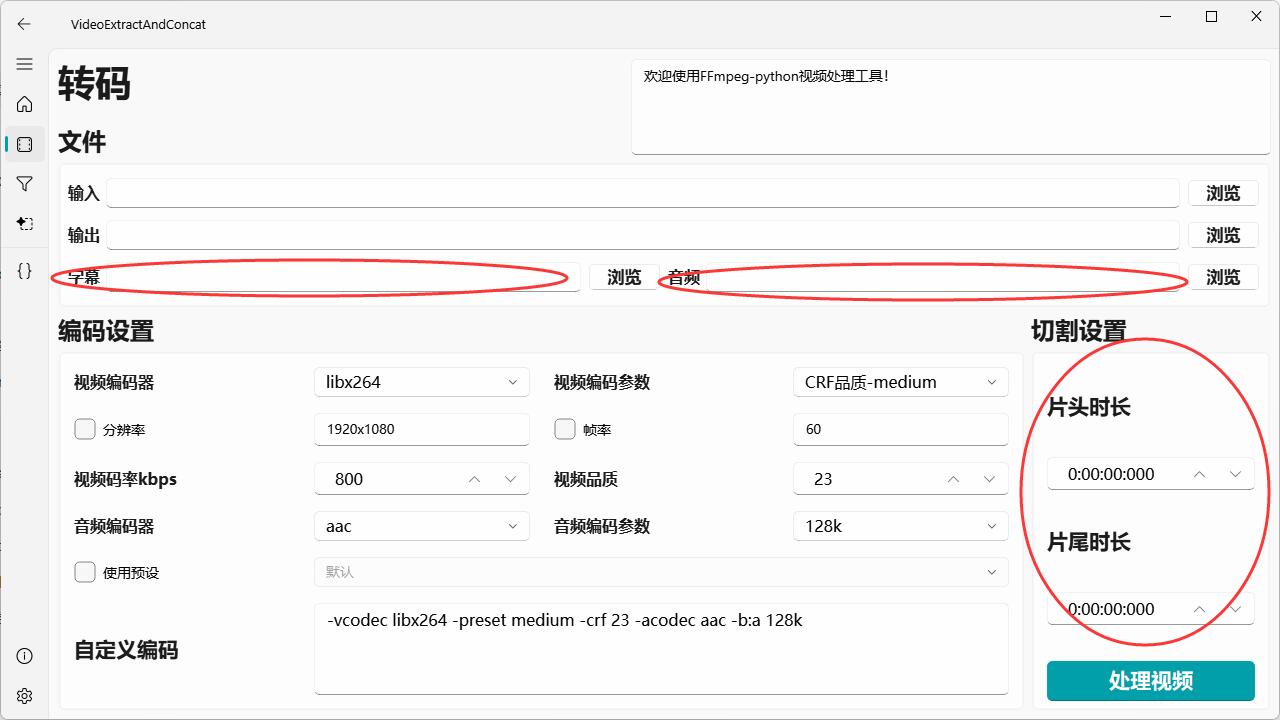
On the advanced filters panel, capabilities include orientation switching (with six predefined options), audio normalization, and custom filter parameter editing. Adjustments made to these features are dynamically reflected in the "Filter Parameters" text box, and the final processing outcome is determined by the content within this box. (Depicted in Figure 5)
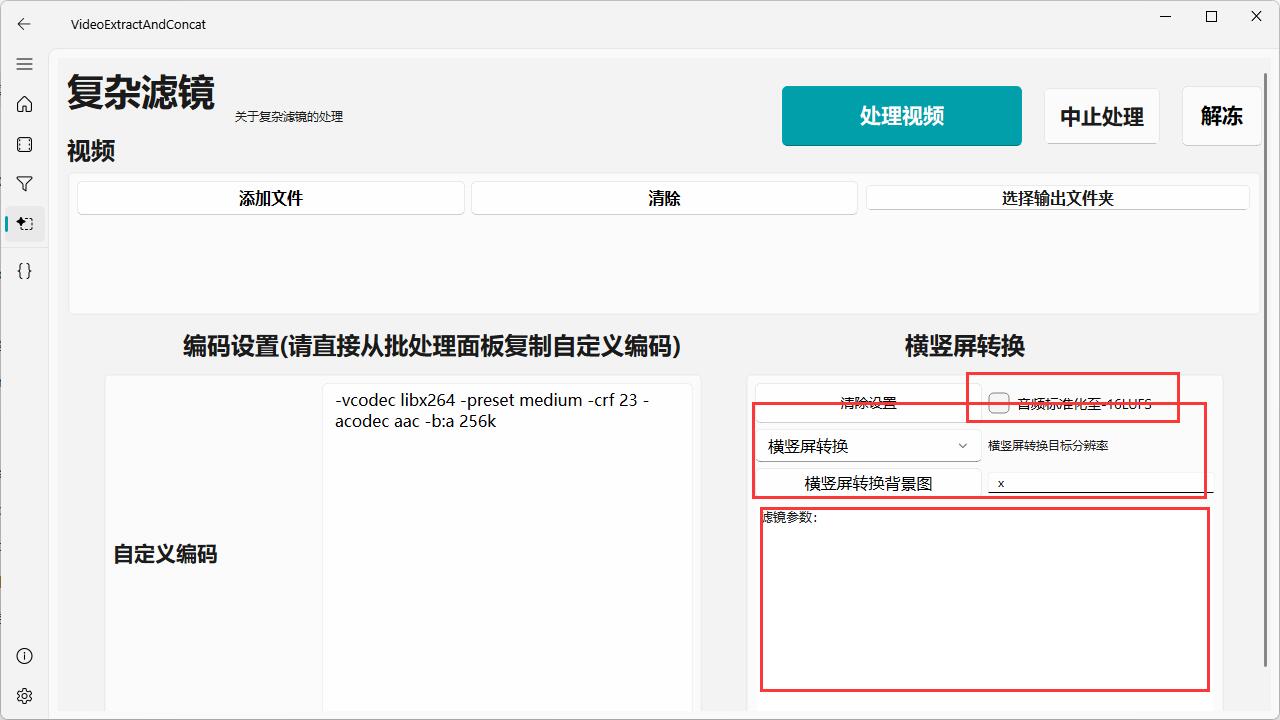
4. Automatic Editing
The automatic editing feature operates independently from other panels, offering functionalities such as re-encoding, exporting project files, extracting audio files, audio normalization, adjusting the auto-editing threshold, video trimming, and playback speed modification. Adjustments to these settings are instantly mirrored in the "Custom Encoding" text box, and the ultimate processing result is contingent upon the content within this box. (Shown in Figure 6)
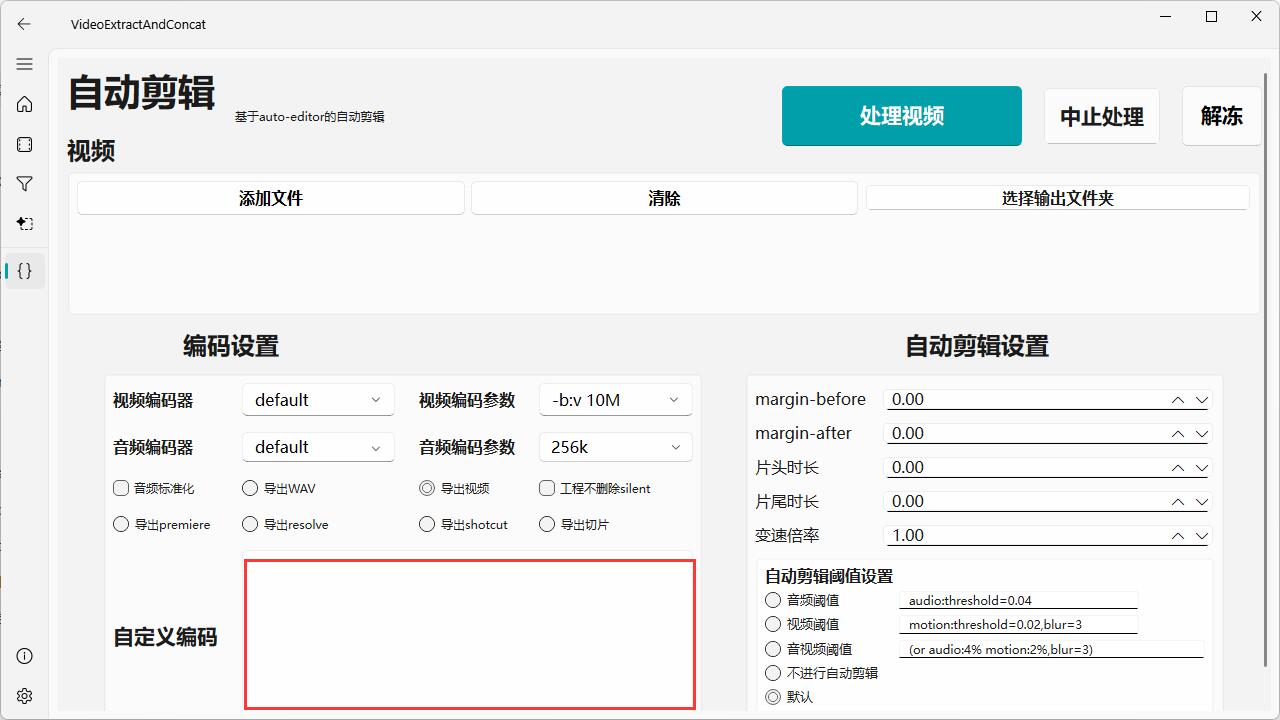
5. Module Configuration
Within the settings panel, users can customize the paths for FFmpeg tools and the Auto-Editor program. After adding these paths, the system automatically verifies their usability and provides feedback accordingly. (Refer to Figure 7)
